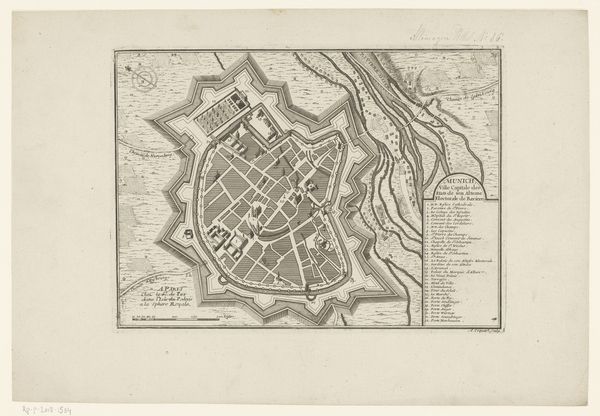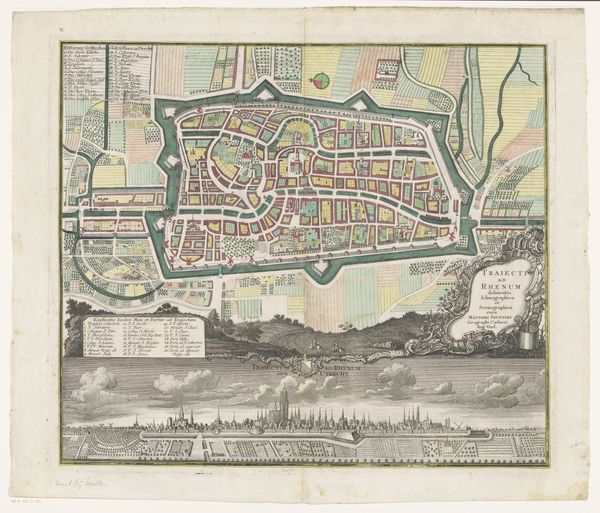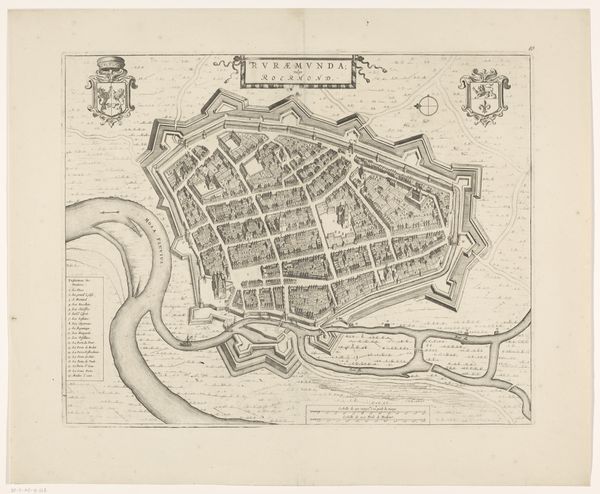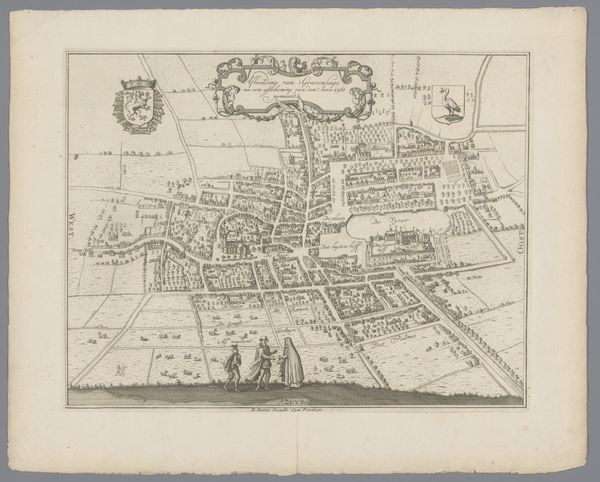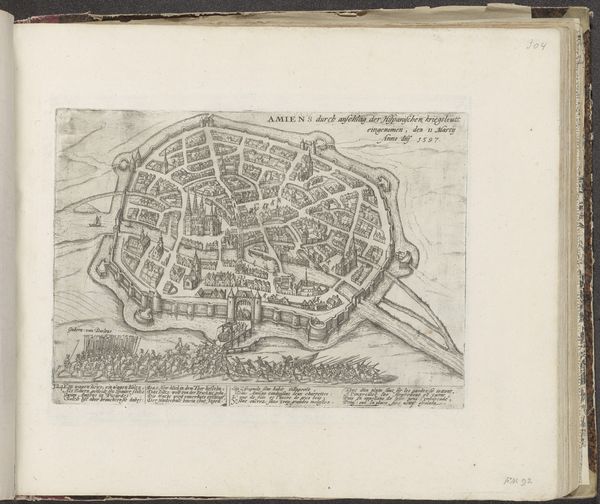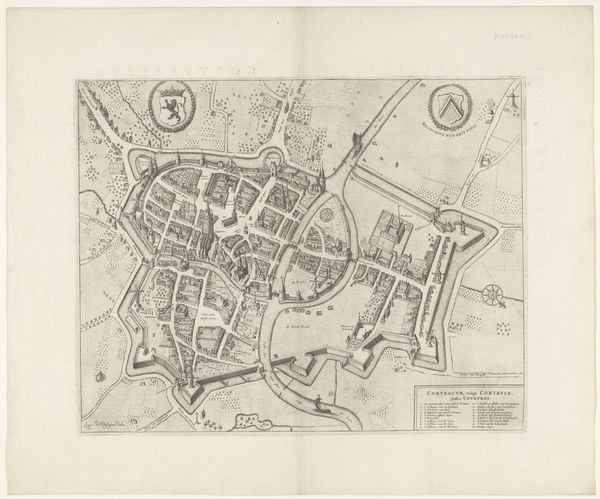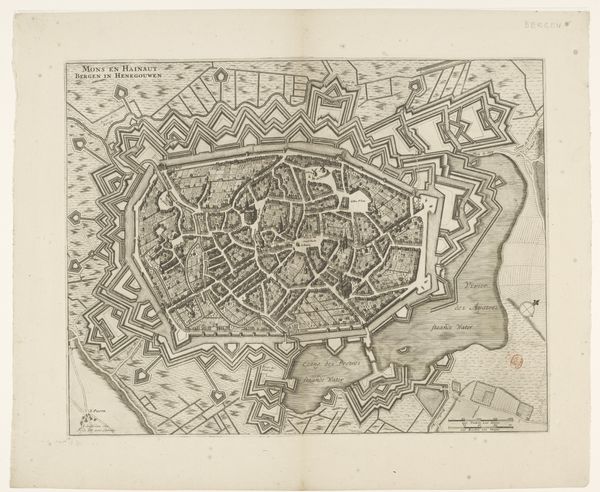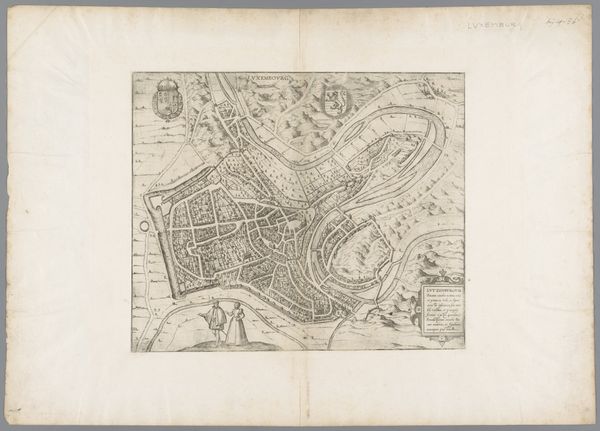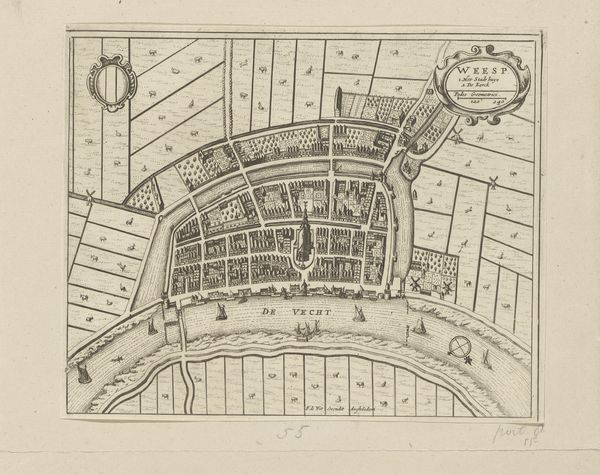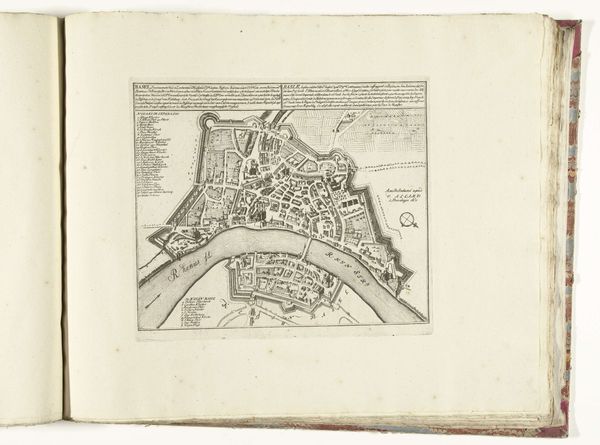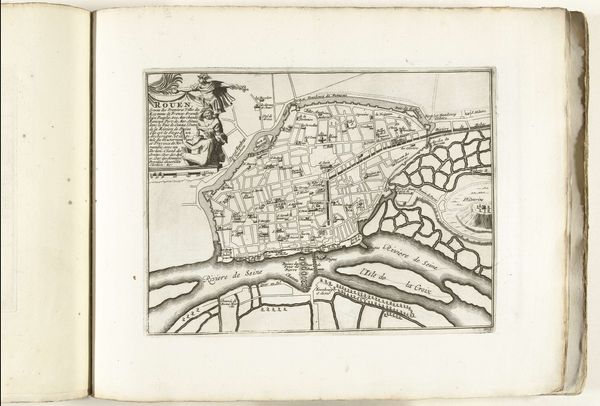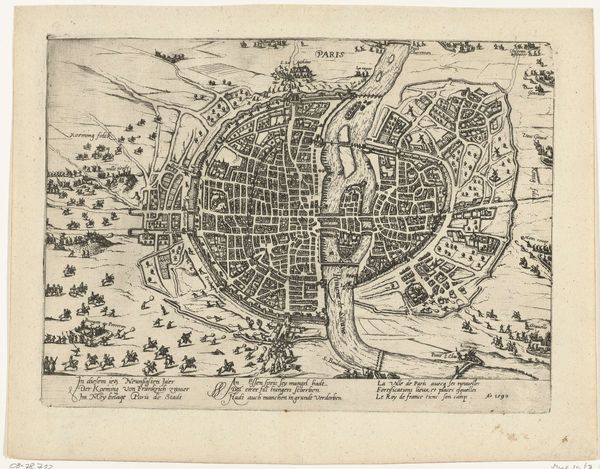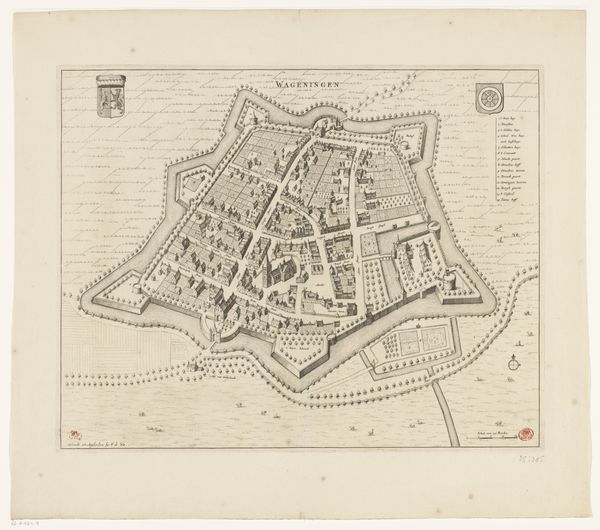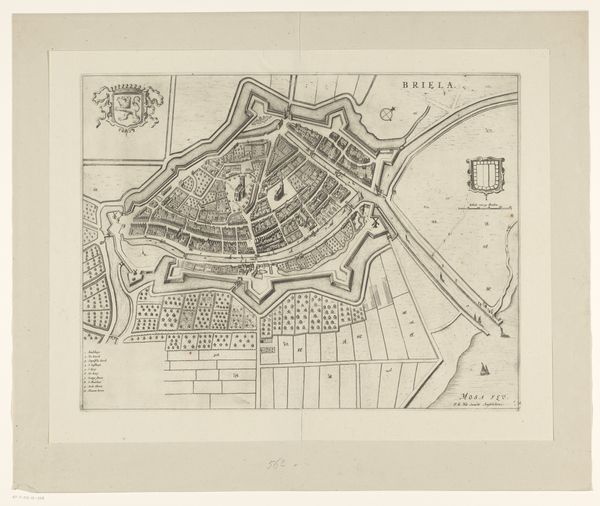
graphic-art, print, engraving
#
graphic-art
#
baroque
# print
#
cityscape
#
engraving
Dimensions: height 183 mm, width 220 mm
Copyright: Rijks Museum: Open Domain
Abraham Allard created this engraving of Pavia in the early 18th century. The city is depicted as a structured grid, enclosed by robust fortifications—a layout that speaks volumes about control, order, and defense. The city walls, with their geometric precision, remind me of the recurring motif of the enclosed garden, the hortus conclusus. We see it in medieval tapestries as a symbol of purity and security. Yet here, the garden is a city, protected not by divine grace but by human engineering and military might. The walls evoke not only physical protection but also a psychological barrier, defining who is inside and who is out. Consider how this geometric order contrasts with the organic chaos of the natural world. The grid imposes human will upon the landscape. This struggle between order and chaos, civilization and nature, echoes through time, reappearing in countless forms, each reflecting the anxieties and aspirations of its age. We see here how urban planning can be viewed as an attempt to control collective emotions, offering a sense of security against the unknown. The image resonates deeply with primal fears and the human need for control and protection.
Comments
No comments
Be the first to comment and join the conversation on the ultimate creative platform.
